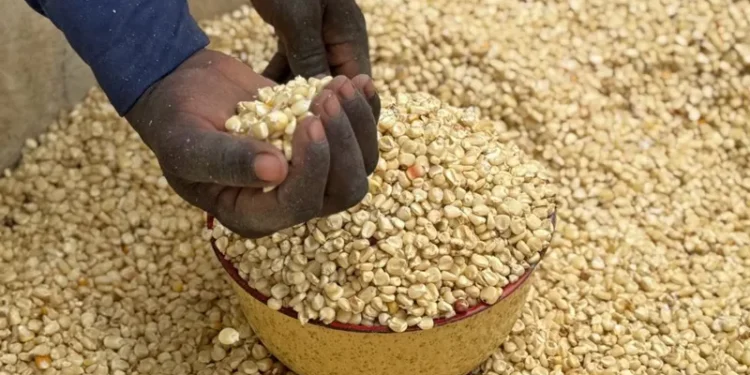Drastic cuts to humanitarian aid in northeastern Nigeria have forced the UN’s World Food Programme to ration its support, leaving nearly 1.4 million displaced people vulnerable to Boko Haram’s militant ideology.
Trust Mlambo, head of operations for the World Food Programme in the area, warns that the lack of aid will make it easier for militants to lure youths into their ranks, escalating insecurity across the region.
Boko Haram, notorious for kidnapping over 200 schoolgirls from Chibok, has taken thousands captive and forced over a million from their homes.
The cuts have already led to a spike in malnutrition rates, with Médecins Sans Frontières reporting a surge in cases of severe malnutrition among children.
Aisha Abubakar, a 40-year-old mother, shares her harrowing experience of losing her husband and six children to Boko Haram attacks.
She now relies on aid distributions in Gwoza, where she receives $20 monthly to buy essential food items like maize.
However, the amount is insufficient to sustain her family for a month. Mlambo appeals for generous donations, stating, “Our warehouses are empty, and we just are desperate for any generous donations.”
The US State Department acknowledges the cuts, attributing them to a reorganization of humanitarian assistance programs under President Donald Trump’s America First policy.
Despite this, the department emphasizes the US remains a leading contributor to global humanitarian efforts. Meanwhile, malnutrition rates continue to soar, with over 650 children dying in MSF facilities since the beginning of 2025 due to lack of timely access to care.
The Nigerian government has recognized the malnutrition challenge, with Vice-President Kashim Shettima promising to tackle it, but the question remains how effectively they can act amid the funding cuts.









